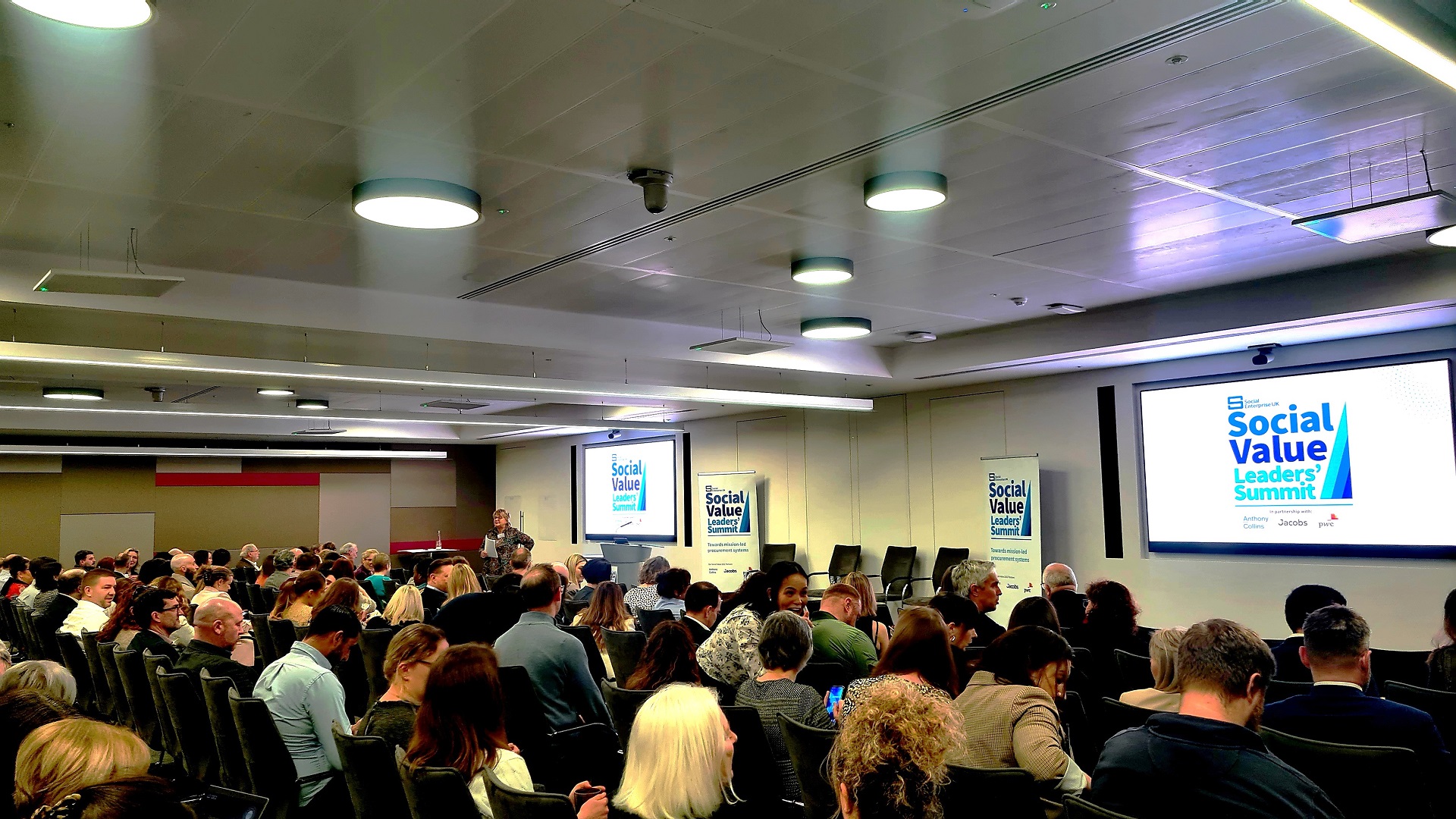Public Services Hub
Resources for Commissioners

Welcome to the Public Services Hub. This page is intended to support public sector professionals to understand why and how to engage with voluntary, community and social enterprises (VCSEs). The VCSE sector’s expertise and commitment to purpose make them natural commercial partners for government and well placed to deliver effective public services.
What is the VCSE Sector?
Government uses the term voluntary, community and social enterprise (VCSE) sector to refer to the charity and social enterprise sectors. Most people are familiar with the charity sector, and aware of its long history working with and delivering on behalf of government. Many will be less familiar with social enterprises. Social enterprises are businesses which trade for a social or environmental purpose. To be a social enterprise, the organisation should:
- have a clear social or environmental mission set out in its governing documents and be controlled in the interest of that mission.
- be independent of state or government control, and earn more than half of its income through trading
- re-invest or donate at least half of its profits or surpluses towards their mission
There are more than 168,000[1] registered charities in England and Wales, contributing £15.6 billion[2] to the economy and employing around 1 million[3] people – 3% of the UK workforce. There are an estimated 131,000 social enterprises in the UK, employing an estimated £1.9 million people.[4] Social Enterprise UK estimate social enterprises contribute £60 billion to the economy.[5]
Why work with VCSEs?
Working with VCSEs has many benefits for government. In terms of policy alignment, VCSEs are the ideal partner to government in a number of key areas:
- Levelling Up. Over 75% of VCSEs deliver public services where they are based, with strong links to and knowledge of that locality.[6] Their expertise and connection to local areas ideally place them to create responsive, efficient and trusted public services.
- Social Value Act. The Public Services (Social Value) Act 2012 aims to improve procurement practice and diversify suppliers to the government, enabling more VCSEs to deliver public services. It requires public service commissioners to consider how they can secure wider social, economic and environmental benefits, known as social value, through the performance of a contract. Government extended the Social Value Act by launching the Social Value Model, placing new requirements on central government from January 2021 onwards to explicitly evaluate social value and thereby further encourage the commissioning of VCSEs.
- SMEs. Government is committed to supporting small and medium enterprises (SMEs) via government procurement. The majority of VCSEs are also SMEs[7] – so working with them helps support those targets as well.
Are they competitive?
Government is committed to delivering social value and increasing opportunities for VCSEs in public procurement. Working with VCSE suppliers is a win-win for government, with VCSEs also providing competitive, innovative and high quality services in spite of the common misconception that they will be less competitive. According to SEUK’s research on the £250m spent to date by our corporate supply chain partners, over 80% found VCSEs were competitive on price and over 95% were comparable or better quality than incumbent providers.[8]
VCSEs can also bring innovation to government delivery. The government’s Social Enterprise Market Trends Report 2019 found that social enterprises were more likely to have introduced a new or significantly improved service during the past three years.[9] Development of new products and services is the proxy used by government to measure innovation. VCSEs deliver differently, and this can help to bring new solutions to government.
What sectors do they operate in?
VCSEs operate in a variety of sectors. They are well known to operate in ‘people-services’ sectors such as health and social care, employability, homelessness, disability and domestic violence and sexual abuse support services. However, charities and social enterprises also operate in every other area of the business sector from technology to legal services.
Resources for Commissioners
VCSE Contract Readiness Programme
Delivered by the School for Social Entrepreneurs (SSE), Social Enterprise UK (SEUK) and Voice4Change England, and funded by the Department for Culture, Media and Sport (DCMS) – the VCSE Contract Readiness Programme is designed to work with both VCSEs and public sector commissioners.
Social Enterprise UK are leading on the commissioner stream of the programme. This will involve working with central government departments to make it easier for government to engage with VCSE suppliers.
This will include working with central government departments to:
- Benchmark departmental spend with VCSEs by using SEUK and open-source datasets to help departments understand how much they’re spending with VCSEs and how they can do more
- Engaging staff through a series of “Demystifying the VCSE sector” webinars
- Driving new relationships through a series of targeted “meet the buyer” events working with relevant VCSE suppliers for specific departmental/category level spend
SEUK are working closely with DCMS to drive all of the above activity with the relevant areas of government. If you work for a department and would like to engage with the programme or find out more please email the DCMS public sector commissioning team on public-sector-commissioning-team@dcms.gov.uk.
Commissioning for Social Value
The Public Services (Social Value) Act requires people who commission public services to think about how they can also secure wider social, economic and environmental benefits, known as social value, through a contract.
The Social Value Model – In 2018 government announced it would go further and explicitly evaluate social value when awarding most major contracts with all departments expected to report on the social impact of their major contracts. The Social Value Model helps government departments implement the changes. It provides a consistent approach to social value for both commissioners and suppliers. More details on how this works can be found in Procurement Policy Notice 06/20 (PPN 06/20)
Guides and other online resources
The art of the possible in public procurement – This report published by E3M looks at the Public Contracts Regulations 2015 and the flexibility it provides commissioners. It goes through how commissioners can unlock these flexibilities, highlighting the art of what is possible in public procurement.
From procurement to partnership: A practical toolkit for commissioners – This step by step guide from E3M has been created to help commissioners maximise positive social outcomes and public value through the creation of effective public service community partnerships.
Local Authority Guide – A guide created by Social Enterprise UK and supported by GLL is for people working in local authorities who are interested in social enterprise: council leaders, senior managers, directors of services, commissioners, heads of procurement, or those with responsibility for economic development. It explains what social enterprise is, how social enterprises can help meet a local authority’s strategic objectives, and gives practical advice on how local authorities can best work with them
Government Outcomes Lab outcomes toolkit – for commissioners considering using outcomes based commissioning in their work with VCSE partners.
Research
The role of Voluntary, Community and Social Enterprise (VCSE) organisations in public procurement (August 2022) – This publication from the Department for Digital, Culture, Media and Sport (DCMS) explores the role which VCSEs can play in public services. It looks at VCSEs current participation in public procurement, the barriers faced by VCSEs in securing public sector contracts and how these can be reduced.
UK Public Procurement through VCSEs, 2016-2020 – DCMS research carried out by Tussell to analyse the scale and proportion of UK public sector procurement conducted through VCSEs from 2016 through to 2020.
Creating a social value economy (May 2022) – This report sets out a new vision for social value and how it can be used as a tool to shape markets, transform public services and create an environmentally sustainable future. This was published as part of the Social Value 2032 Programme, a programme of work delivered by SEUK in partnership with Jacobs, PwC, Shaw Trust, Siemens and Suez.
Social Enterprises Market Tends Report (April 2021) – DCMS coordinates government policy towards social enterprises and commissioned this report. It examines the sector and identifies its scale in the UK, utilising a broad DCMS definition which includes both social enterprises within the voluntary and community sector and also social enterprises operating as mission-led or purposeful businesses with private sector legal forms.
Front and Centre report (May 2019) – The report focuses on the extent to which social value
has been embedded through processes and priorities within government. It particularly
looked at the understanding and awareness of the Act in local government among officers and
councillors outside of procurement teams and examined the appetite to use the Act.
Find suppliers
The Social Enterprise Directory – A directory of all social enterprises which are members of Social Enterprise UK.
Upcoming Changes to working with VCSEs
The Procurement Act will come into force during 2024 and is set to reform the UK’s public procurement regime post-Brexit. Provisions within the Bill will more effectively open up public procurement to VCSEs so that they can compete for and win more public contracts. Further detail on the Bill is available at the Transforming Public Procurement landing page.


[1] Charity Commission, as of 17th February 2022
[2] DCMS Sectors Economic Estimates, Summed Monthly GVA (to September 2022)
[3] DCMS Sectors Economic Estimates, Employment July 2021-Jun 2022
[4] DCMS BEIS Social Market Trends report, April 2019
[5] The Hidden Revolution – SEUK, 2018
[6] Tussell Trust Research for DCMS, UK Public Procurement through VCSEs 2016-2020, 2021.
[7] State of Social Enterprise report 2023 and Charity Commission 2023
[8] Buy Social Corporate Challenge Year 6 Impact Report, SEUK, 2022
[9] DCMS BEIS Social Market Trends report, April 2019



